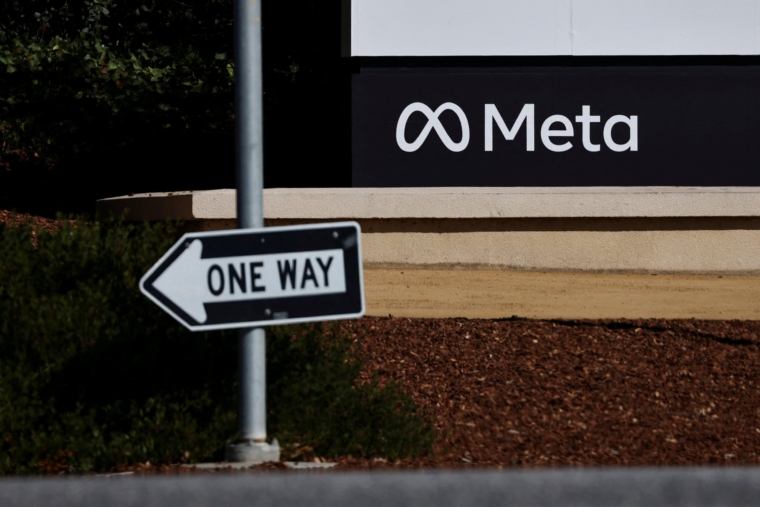Facebook is facing a long future of decline as youngsters snub the platform in favour of TikTok and its dwindling US and European audiences are no longer being offset by growth in the developing world, experts have said.
Meta, Facebook’s parent company, has confirmed a drop in numbers using the platform for the first time in its 18-year history as daily users fell from 1.929bn during the three months to the end of December, compared to 1.930bn in the previous financial quarter.
The share price of parent company Meta dropped by around 20 per cent today – or around $175bn (£130m) – as investors appeared spooked by the figures.
The drop in users, which was largely attributed to Africa and Latin America, is unlikely to come as a surprise to Facebook, which we know has been bracing itself for an exodus of users for some time – particularly Gen Z and millennial users.
The company’s own internal research found that teenagers users find the platform “boring” and “for people in their 40s and 50s”, according to documents seen by tech site the Verge published in October last year, with the younger audience also outlining “a wide range of negative associations with Facebook including privacy concerns, impact to their wellbeing, along with low awareness of relevant services”.
The number of teenagers using the social network’s app in the US declined by 13 per cent since 2019 and is projected to drop by 45 per cent in the next two years, documents presented to Facebook executives detailed, adding that the social network faced a more “severe” decline in young users than currently predicted if the number of teenagers choosing to use Facebook as they age continued to fall.
It’s also clear where younger eyeballs are finding a digital home away from Facebook, which has taken a reputational battering in the past year among accusations it fails to shield children from harmful content on its platforms, struggles to regulate hate speech and misinformation and was aware of its negative effects on young people’s mental health and body image.
Phenomenally popular video app TikTok became the first app outside the Facebook ecosystem (including Instagram, Messenger and WhatsApp) to reach 3bn global downloads last year, boasting 1bn monthly active users and eclipsing Google to become the most-visited website of 2021.
Its irreverent clips featuring everything from dancing challenges and crochet inspiration to viral pasta recipes and plant care advice resonate with younger audiences, prompting Instagram to launch its own copycat Reels video feature.

“We’re entering this new golden age of video,” Mark Zuckerberg told Buzzfeed News in 2016, adding: “I wouldn’t be surprised if you fast-forward five years and most of the content that people see on Facebook and are sharing on a day-to-day basis is video.”
Zuckerberg may have correctly predicted that watching, sharing and interacting with videos would skyrocket in popularity among social media users by 2021, but Facebook isn’t where they ended up watching it, says Charles Arthur, journalist and author of Social Warming: The Dangerous and Polarising Effects of Social Media.
“Facebook has struggled with engagement for a long time, which is a long-standing problem and partly why they’ve been tweaking their news algorithm since 2016,” he says.
“The younger demographics are all on TikTok because its algorithms are better at engaging people than Facebook but are also sharing videos and interacting on streaming services Twitch and Discord.
“We’ve reached peak Facebook; this is as big as it’ll get because the only way it’s going to get bigger is if it goes into China and it’s not going to do that – there’s no new place for it to go.
More from Technology
“There’s always going to be a more attractive venue for younger users, and it’s reached all the adult users it’s going to reach.”
However, rumours of Facebook’s imminent demise are greatly exaggerated, as the company looks to the metaverse as its next great source of income – repackaging its business model of surveillance capitalism combined with targeted advertising, says Christian Fuchs, professor of media and communication studies and author of Social Media: A Critical Introduction.
“Facebook’s transformation into Meta and the announcement to create a metaverse is the attempt to expand the model of digital surveillance and targeted advertising from users’ platform use to their entire everyday life. This vision is not something radically new, but an expansion of Facebook’s existing model.
“TikTok only appears to be different from Facebook. It is combining the sale of targeted ads with in-app purchases,” he added. “TikTok is just like Facebook: part of the world of platform capitalism that commodifies and commercialises the internet. It is time for true alternatives to this model.”
The social network isn’t facing the same fate that MySpace or Friends Reunited suffered before it because even if it continued losing a million daily users each quarter, it would still take 500 years to vanish entirely, Arthur points out, explaining that Facebook’s inexorable rise was born from offering something different to Google, which in turn was the orthogonal response to Microsoft.
“The solution to beating Google wasn’t to create another search engine, it was to create social networks,” he says.
“So, beating Facebook doesn’t lie in being a site where people write things – it’s being TikTok with an incredibly powerful algorithm that watches every tiny move you make to serve you more engaging video.
“But Facebook is still safe for now. There’s a long way to go before they’re scrabbling around for users, it’s not a MySpace scenario. We hit peak Google a few years ago, but Google doesn’t show any signs of going away.”

